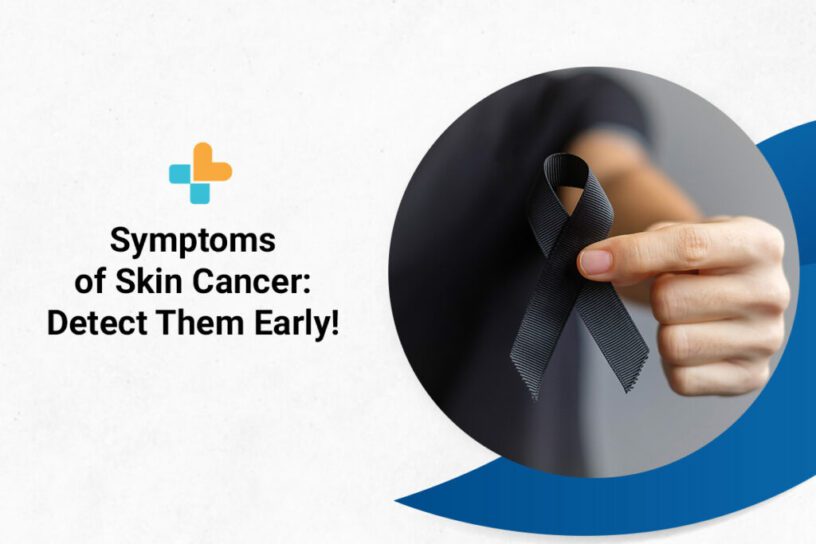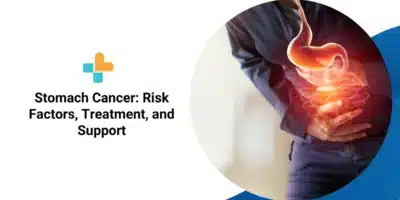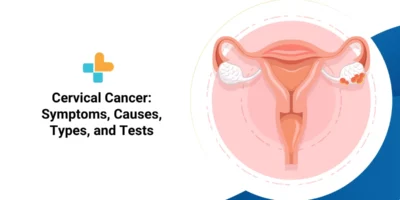While skin cancer isn’t on the list of the most common types of cancer, it’s nevertheless just as deadly as the others.
Treating skin cancer, just like any other cancer, is a painful process when you’ve waited too long on the symptoms. That’s why you need to know the early signs and symptoms so that you can treat them from the get-go.
In this article, we’ll cover what exactly skin cancer is, the signs and symptoms of different kinds of skin cancer, and how to detect early signs.
Let’s begin.
What Is Skin Cancer?
Skin cancer is the abnormal growth of skin cells. More often than not, it develops on skin that’s been overexposed to the sun. But it’s known to occur on areas of your skin that aren’t normally exposed to sunlight.
A common myth is that people with darker skin tones aren’t susceptible to the effects of UV radiation. However, skin cancer is known to affect people of all skin tones, including people with darker complexions.
Skin cancer is the abnormal growth of skin cells. More often than not, it develops on skin that’s been overexposed to the sun. But it’s known to occur on areas of your skin that aren’t normally exposed to sunlight.
What Are the Different Types of Skin Cancer?
There are three main types of skin cancer:
- Basal cell carcinoma
- Squamous cell carcinoma
- Melanoma
The less common types of skin cancer are:
- Kaposi sarcoma
- Merkel-cell carcinoma
- Sebaceous gland carcinoma
While basal cell carcinoma is the most common skin cancer worldwide, various reports show that squamous cell carcinoma is more prevalent in India.
Signs and Symptoms of Skin Cancer
Each type of skin cancer comes with its own set of symptoms. We went through various reports of all types of skin cancer and gathered a list of the most common symptoms for each.
Symptoms of Basal Cell Carcinoma
Basal cell carcinoma mostly occurs in areas of your body exposed to the sun, like your face or neck. Common symptoms include:
- A dome-shaped growth on the skin that has blood vessels (it can be pink, brown, or black)
- A small, “pearly”, flesh-coloured bump
- Shiny, pink or red, and scaly red patches
- Hard and waxy skin growth
- Bleeding sores that heal and reappear
Symptoms of Squamous Cell Carcinoma
Squamous cell carcinoma tends to occur on sun-exposed areas of your body (like the face, hands, and ears). People with darker complexions are more likely to develop squamous cell carcinoma on parts of the skin not exposed to the sun.
Common symptoms of this skin cancer include:
- A wart-like, dome-shaped bump on the skin.
- Red, scaly patches on the skin that are crusty and bleed easily.
- An open sore that doesn’t fully heal.
- A growth with raised edges (and a lower area in the middle) that gets itchy or bleeds.
Symptoms of Melanoma
Melanoma can develop on any part of the body. In men, it’s common on the face or trunk; in women, it develops on the lower leg. In both cases, melanoma can develop on skin that hasn’t been exposed to UV radiation.
Common symptoms include:
- A mole that changes in colour, size, and texture (susceptible to bleeding).
- A painful lesion that burns or itches.
- A large, brownish spot with dark speckles.
- A small lesion with an uneven border that’s white, blue, pink, red, or bluish-black.
- Multiple dark lesions on your soles, toes, palms, and fingertips.
- Dark lesions on the mucous membrane linings of your mouth, nose, vagina, or anus.
Symptoms of Lesser Known Skin Cancers
Here are the symptoms of the three lesser known skin cancers.
1. Merkel Cell Carcinoma
Merkel cell carcinoma causes firm, shiny nodules that develop on or just beneath the skin and in hair follicles. This cancer is commonly found on the head, neck and trunk.
People who have light skin tones and are above the age of 50 are more likely to get this form of skin cancer.
2. Kaposi sarcoma
This form of skin cancer is quite rare. It develops in the skin’s blood vessels and causes red or purple patches on the skin or mucous membranes.
It mainly occurs in people with compromised immune systems, such as those with HIV. It also occurs in people taking medicines that suppress natural immunity (eg., people who’ve undergone organ transplants).
Young men living in Africa or older men of Italian or Eastern European Jewish heritage have the highest risk of getting Kaposi sarcoma.
3. Sebaceous Gland Carcinoma
Sebaceous gland carcinoma is a rare and aggressive form of skin cancer that begins developing in the oil glands of your skin.
They appear as hard and painless nodules. While they can develop anywhere, they commonly occur on the eyelid (sometimes mistaken for an eye ailment).
Risk factors include UV radiation exposure, immunosuppression, and Muir-Torre syndrome.
Detecting Symptoms and Knowing the Risk Factors
Every doctor will tell you that detecting the early signs of skin cancer is the first step to beating skin cancer.
According to our research and what we see on a daily basis, you should see a doctor and test for skin cancer if you have:
- A sore that hasn’t healed within four weeks.
- A spot or sore on your skin that’s either itchy, painful, or crusty.
- Scabs for more than four weeks that bleed often.
- Areas of broken-down skin that doesn’t heal within four weeks.
Also, keep in mind certain risk factors that make you more susceptible to skin cancer. These include but aren’t limited to:
- Consistent exposure to the sun
- Weakened immune system
- Frequent indoor tanning
- Lighter skin complexion
- Precancerous skin conditions
- Previous case of skin cancer
- Certain medications that compromise your immune system
- Arsenic exposure
If you live in the North and North-East part of India, you’re more likely to contract skin cancer due to the arsenic exposure along the Ganges basin.
Fight Skin Cancer at the Earliest Stages
We heard it said many times that prevention is better than cure. This especially applies to something as life-threatening as skin cancer.
If you feel like you may be at risk for skin cancer, our advice to you is to know and fully understand its signs and symptoms. Early detection saves you from a host of ailments and procedures.
If you’d like to learn more about cancer prevention or treatment or seek medical intervention for early or late stages of skin cancer, get in touch with Ayu Health at +91 636-610-0800 or book an appointment on our website.
Our Hospital Locations
Oncology Surgery Hospitals in Bangalore | Oncology Surgery Hospitals in Jaipur | Oncology Surgery Hospitals in NCR | Oncology Surgery Hospitals in Hyderabad
Our Doctors
Oncology Surgery Doctors in Bangalore | Oncology Surgery Doctors in Jaipur | Oncology Surgery Doctors in NCR | Oncology Surgery Doctors in Hyderabad
About the Author

Dr. Shivakumar Uppala
Dr. Shivakumar Uppala is renowned as one of the best Cancer Specialist Doctors in the country, has performed more than 500 surgeries till now, and is an experienced surgical oncologist as well as a consultant. He is practicing at Ayu Health, Bangalore. He is a specialist in Surgical Oncology and MS - General Surgery Laparoscopic Surgeon.




